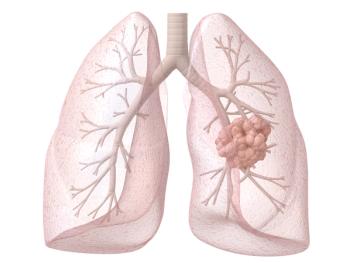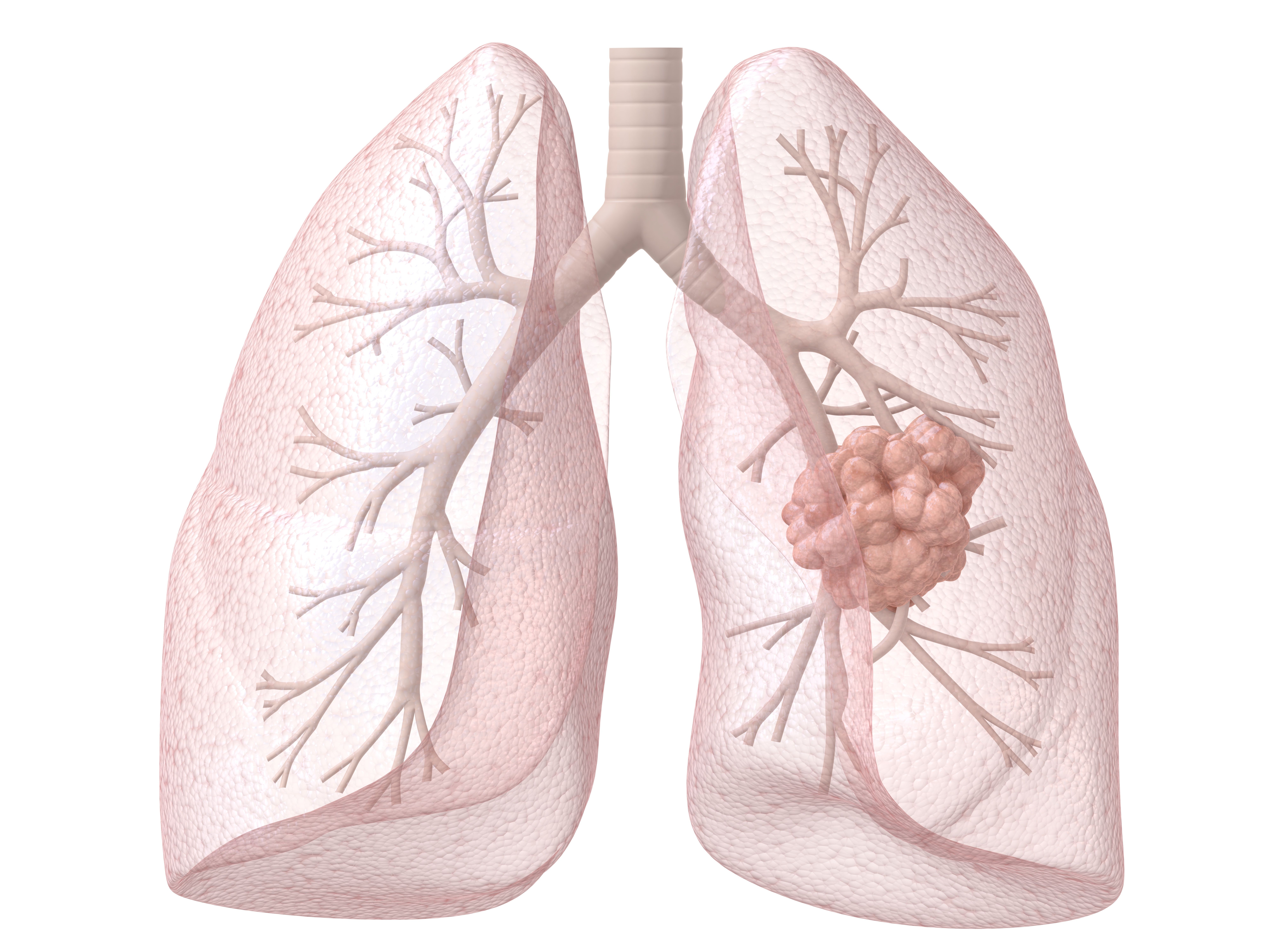
Non-Small Cell Lung Cancer (NSCLC)
Latest News
Latest Videos

CME Content
More News

Supporting results for the approval of taletrectinib in ROS1+ NSCLC come from the TRUST-I and TRUST-II trials.

Sacituzumab tirumotecan showed a manageable safety profile compared to docetaxel in patients with EGFR-mutant advanced non–small cell lung cancer.

Following the induction phase with chemotherapy alone, ibrilatazar has shown a manageable toxicity profile in patients with advanced squamous NSCLC.

Among 44 patients with EGFR-positive non–small cell lung cancer who discontinued docetaxel, 36.4% crossed over to the sac-TMT arm.

The DREAM program led by Ankit Bharat, MD, MBBS, FACS, allowed Cornelia Tischmacher to receive a double lung transplant for her stage IV lung cancer.

RET rechallenge following disease progression demonstrated greater efficacy with select combination therapies targeting bypass resistance vs single agents.

Results from CheckMate-816 could be practice-changing after an OS improvement was noted with NAT nivolumab plus chemotherapy in resectable NSCLC.

Efficacy and biomarker analyses from CheckMate-77T support perioperative nivolumab as an effective option in resectable NSCLC.

An efficacy advantage with osimertinib-containing regimens was consistent across predefined patient subgroups in those with EGFR-mutant NSCLC.

Most patients who received COCOON dermatologic management reported mild or no dermatologic symptoms following treatment with amivantamab/lazertinib.

Data from SACHI support savolitinib/osimertinib as a chemotherapy-free option in previously treated EGFR-mutated NSCLC harboring a MET amplification.

Results from HERTHENA-Lung02 did not show improved OS with HER3-DXd for patients with EGFR-mutated NSCLC.

Among 2 patient subgroups with advanced, HER2-mutant non–small cell lung cancer, sevabertinib showed comparable objective response rates.

Results from the KRYSTAL-7 trial showed that efficacy was improved with adagrasib/pembrolizumab for KRAS G12C-mutated NSCLC.

Amivantamab/chemotherapy remained efficacious regardless of the osimertinib resistance mechanism for patients with EGFR-mutated NSCLC.

Ivonescimab plus chemotherapy reduced the risk of disease progression or death by 48% vs chemotherapy alone in patients with EGFR-mutant NSCLC.

After a lack of significant topline overall survival data from the phase 3 HERTHENA-Lung02 trial, the application for HER3-DXd in NSCLC was withdrawn.

The decision is based on results from the phase 1/2 SOHO-01 trial evaluating the agent in patients with advanced HER2-mutant non–small cell lung cancer.

Patients who received 70 Gy of radiotherapy had a significantly longer duration of treatment than those who received less than 70 Gy.

Stage IV lung cancer may be curable based on the success of the DREAM Program, according to thoracic surgeon, Ankit Bharat, MBBS,

Ankit Bharat, MBBS, a thoracic surgeon, discussed potential treatment-emergent adverse effects or complications as well as strategies for managing them.

Thoracic surgeon Ankit Bharat, MBBS, discussed surgical strategies among patients with advanced lung cancer diagnoses based on staging.

Data from the INCITE-ES study show 100% technical success with pulsed electric field energy delivery before surgical resection.

Given an unmet need for efficacious therapies against ALK-positive NSCLC, experts discuss optimal ALK TKI sequencing for patients with this disease.

Panelists discuss how proactive management of adverse effects through the COCOON protocol represents a paradigm shift that could be applied to other EGFR inhibitors, emphasizing early intervention before symptoms appear.








































